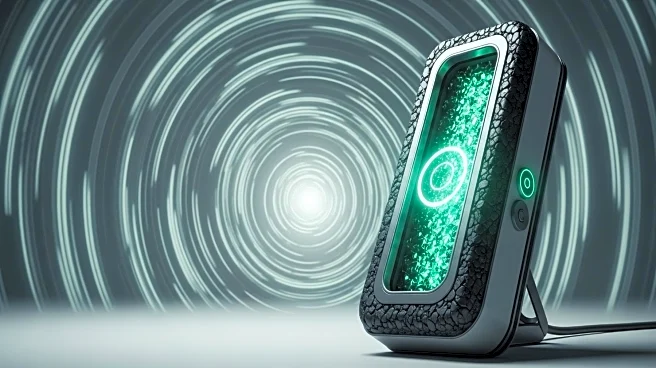What's Happening?
A team of researchers from Denmark has developed a method to transform decomposed PET plastic into a material that captures carbon dioxide. This innovative approach, detailed in a study published in Science Advances, addresses both the global plastic waste crisis and the urgent need to reduce greenhouse gas emissions. The process involves upcycling PET plastic, commonly found in bottles and packaging, into a CO2 sorbent called BAETA. This material can absorb significant amounts of CO2 and is more heat-resistant than other amine sorbents, although it requires more energy to maximize absorption and release captured carbon. The researchers aim to use this method to tackle marine plastic pollution and contribute to climate change mitigation.
Why It's Important?
The development of BAETA represents a significant advancement in environmental technology, offering a dual solution to two major global issues: plastic pollution and climate change. By converting plastic waste into a resource for carbon capture, this method provides an economic incentive to clean up oceans and reduce greenhouse gases. The potential scalability and cost-effectiveness of BAETA could lead to widespread adoption, benefiting industries focused on sustainability and environmental protection. This innovation could also influence public policy and corporate strategies aimed at reducing carbon footprints and managing waste.
What's Next?
The researchers plan to explore the feasibility of collecting decomposed PET plastic from oceans to further test and implement their carbon capture method. This could involve collaborations with environmental organizations and governments to facilitate large-scale ocean clean-up efforts. Additionally, further research may focus on optimizing the energy efficiency of BAETA to enhance its commercial viability. Stakeholders in the environmental sector are likely to monitor these developments closely, considering potential investments and partnerships to support the technology's deployment.
Beyond the Headlines
This breakthrough highlights the interconnected nature of environmental challenges and solutions. By addressing plastic waste and carbon emissions simultaneously, the research underscores the importance of integrated approaches to sustainability. It also raises ethical considerations regarding the responsibility of industries and consumers in managing waste and reducing environmental impact. Long-term, this innovation could shift cultural attitudes towards waste management and climate action, promoting a more circular economy.









